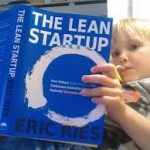
One of the first questions start up entrepreneurs usually ask sounds something like this: “Is it worth the effort and expense to get a patent on this business idea?” In countless conversations with clients in my years as a patent attorney, I could usually articulate multiple reasons why the person seeking to to start a new business venture unequivocally needed to file a patent application as soon as possible. Moreover, I could recite a litany of ills that could follow from failing to follow my advice. Following this conversation, I could typically expect a fat check from the client, whereupon I would dutifully draft strong patent on the subject invention. It was a nice living.
These days, I work as a startup technology company CEO and look at patents much differently than I did in the past: as a consumer of patent services myself, I now examine patenting issues from the vantage point of an entrepreneur, not as a lawyer whose business model centers on patents. My viewpoint has been further honed in the last year as I have become a practitioner of the Lean Startup Methodology, a startup business framework that, in short, states that if an entrepreneur cannot validate her business model with actual, paying customers, she has no business being in business. In this new operational paradigm, when a company is in the startup phase, all efforts not spent on determining whether a profitable revenue model exists with customers should be considered wasteful. It then necessarily follows that obtaining a patent on a product or service that no one will buy is by definition waste in the world of the Lean Startup.
Lean Startup Methodology is just now growing in adoption with entrepreneurs like myself. Few patent attorneys likely participate actively in the thought processes circulating in the startup world–why should they–their business is patents, not building a startup business. It is therefore doubtful that patent advice relevant to Lean Startup has started to permeate the legal advice world. Moreover, advice that entrepreneurs not patent as frequently, which will inherently result when an entrepreneur follows the Lean Startup Model, will necessarily reduce the income streams for patent professionals. I expect that unless patent lawyers quickly generate a new business model that allows them to generate substantial income from clients by recommending NOT patenting, patent lawyers will be slow in incorporating the Lean Startup Model into their advice to entrepreneurs.
In later posts, I will endeavor to provide a reality check to those who wish to get beyond opinions based on anecdotes and self-interested experts regarding the likely return on investment that entrepreneurs can expect from filing for patent protection for their business or product idea. For those entrepreneurs also following the Lean Startup Methodology in their business, these posts will hopefully provide your team with a framework to determine whether patent filing will comprise wasteful effort and expense that can detract from the ability to achieve success.
The initial takeaway for Lean Startup Method entrepreneurs should be that when a patent professional is giving you patent advice, you should apply the Lean framework to his business model. As long you continue to accept his advice and pay him to obtain a patent on your business idea, you are validating his business model. As I said, it’s a great business. It’s up to us Lean Startup entrepreneurs to force them to develop a new model that serves us better as we embrace this new business paradigm.
image Dribble.com



Jackie,
I agree with you completely as both an entrepreneur and a patent professional. Although I became a registered patent agent almost a decade ago, I consciously chose to not file patent applications for others as a service. This was in part because of the inherent conflict you mentioned, but more from my stronger interest in successful commercial application of IP after two decades in R&D and manufacturing. My experience is that many entrepreneurs have been convinced that they need a patent to be successful and to survive funding due diligence. As a result, paying for up-front analysis on whether a patent makes sense or not looks like a poor value equation to most entrepreneurs. If the analysis indicates that a strong patent of commercial value aligned with the business plan is probable, then the analysis is an additional cost to the subsequent filing costs and patent professional fees. If the analysis indicates that a patent doesn’t make commercial sense, then the value comes from limiting investment in a weak patent with narrow claims, little strategic alignment or design-around possibilities. Adding the tough ego hit for entrepreneurs in the latter case in their paying a third party to tell them not to bother protecting their brainchild makes this a difficult service sale for patent professionals.
Thanks. I look forward to your follow-up postings on this paradigm.
Great comment, Dan. Sorry for the delay in approving it. Looking forward to connecting with you. I have much more to say on this topic and it’s nice to meet a kindred spirit.
Hi Jackie.
Read two of your posts. Great articles! I am new to the Lean Startup Methodology as well as the IP area. I have a couple ideas for consumer products. These ideas address common complaints from consumers on existing commercial products. From my own market, product and patent research, there are products and ideas out there but none really addresses the issues well. I have made breadboards and tested them successfully. These are very simple ideas and would probably costs $800K to develop each and < $10 cost of good.
In this case, it seems logical to patent the ideas. Would appreciate if you could share your thoughts.
Thank you.
Kristina
Do you plan to license or make it yourself? If you plan to license, you would need to patent, but the likelihood of your getting a licensee on a bare patent right is virtually zero %. If you plan to make the investment to introduce the product, $800K sounds really expensive to achieve a minimum viable product. And, look at how many you would have to sell in order to just break even, and you are not even baking in the cost of marketing/sales channel development, which will likely be much more than your development costs. In short, this may be a good idea with a great market opportunity, but, in my opinion, you need to rethink how you’re going about this. Whether to patent is the least of your concerns–you need to figure out whether you can actually make money on this. Don’t believe me? Take a walk through Tuesday Morning to see all the life savings wrapped up into drastically marked down products that couldn’t get slotted or, if they were slotted, didn’t sell in conventional stores.
Note that many of my patent attorney peers would disagree with my advice here. There business is patents, not creating a successful business model, however. The same goes for all the consultants who will gladly take your money you get your product to market. You need to decide if you’re in the business of validating their business models or yours.